
Proudly Sponsored By

Presenter: Amit Kesarwani
Director of Solution Engineering
lakeFS by Treeverse
Join us for the TMLS Machine Learning Virtual Micro-Summit in Government Sector Annual Gathering.
8 speakers will explore applications of Machine Learning from both the business and technical areas of expertise.
Attendees will have opportunities to meet with both academic researchers and industrial parties active in the Government Sector in order to gain new perspectives from each other’s scope of work.
The Micro-Summit includes:
Join this new initiative to help push the AI community forward.

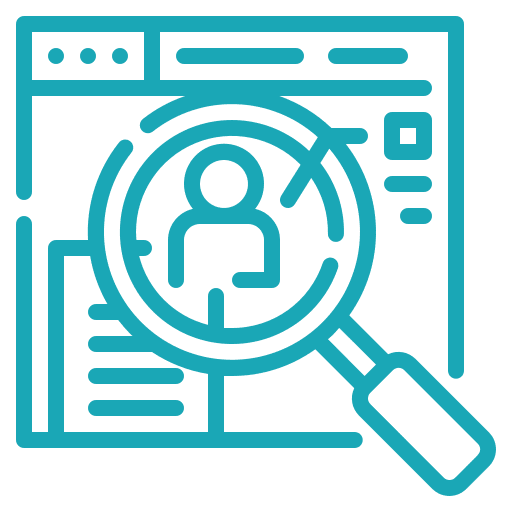
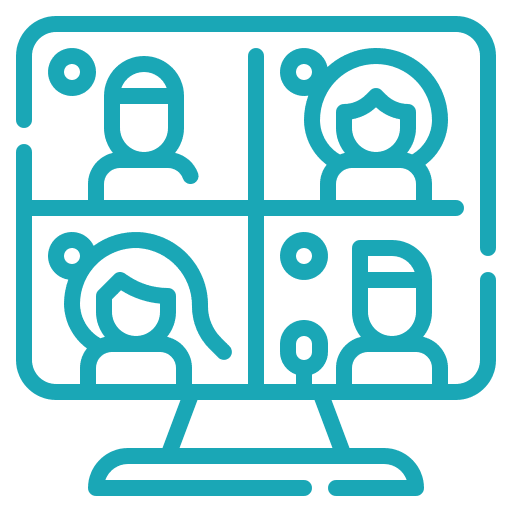

Data Scientist, Microsoft

Founder, Synthetic Intelligence Forum

Solution Architect, TransLink
Talk: Operationalizing ML for Next Bus Departure Time Predictions
Co-Presenter: Ron Mok
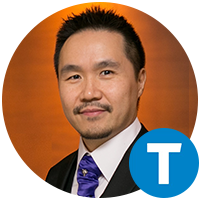
Talk: Operationalizing ML for Next Bus Departure Time Predictions
Co-Presenter: Winston Zhou
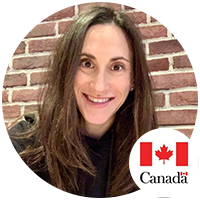
Acting Chief Data Officer, Environment and Climate Change Canada
Talk: Machine Learning using Weather Data

Government and Healthcare Industry Manager, Microsoft
Talk: Fireside Chat: From Innovation to Impact with Data Science and Behavioral Science
Co-Presenter: Rodney Ghali

Assistant Secretary to the Cabinet, Impact and Innovation Unit, Privy Council Office
Talk: Fireside Chat: From Innovation to Impact with Data Science and Behavioral Science
Co-Presenter: Pauline Martin


AI Manager, Canadian Food Inspection Agency
Talk: Deep Learning Utilization at the CFIA
Co-Presenter: Amir Kalantari & Geetika Sharma

Talk: Deep Learning Utilization at the CFIA
Co-Presenter: Noureddine Meraihi & Geetika Sharma

Senior Data Scientist, Government of Canada
Talk: Deep Learning Utilization at the CFIA
Co-Presenter: Noureddine Meraihi & Amir Kalantari
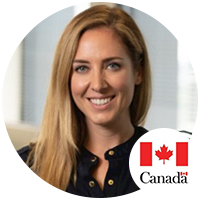
Director, Data and Lean Process Management, Transport Canada
Talk: Fireside Chat: Digital Enablement
Co-Presenter: Neil Bouwer

VP Innovation and Skills Development Branch, Canada School of Public Service
Talk: Fireside Chat: Digital Enablement
Co-Presenter: Chantal Ayotte

Data Scientist, Canada Post
Talk: From Pickup to Delivery: Demand Forecasting at Canada Post
Co-Presenter: Ben Polasek

Data Scientist, Canada Post
Talk: From Pickup to Delivery: Demand Forecasting at Canada Post

Director, Strategic Policy Office of the Chief Scientist, Natural Resources Canada (NRCan)
Co-Presenter: Ryan Hum

Chief Information Officer and Vice President, Data and Information, Canada Energy Regulator
Co-Presenter: Brenda Dogbey
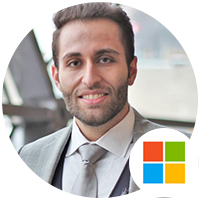
Data Scientist, Microsoft
Talk: Responsible Machine Learning Operations in Action

AI Team Lead, Canadian Border Service Agency
Talk: Fireside Chat: Advancing Responsible AI and Human Centered Data Science in the Government
Co-Presenter: Marilia Araujo & Pallavi Roy

Leader of Analytics and AI Transformation for the Federal Government, PwC Canada
Talk: Fireside Chat: Advancing Responsible AI and Human Centered Data Science in the Government
Co-Presenter: Rim Khazall & Pallavi Roy

Lead Experimentation and Behavioural Science, Innovation Branch, NRCan
Talk: Fireside Chat: Advancing Responsible AI and Human Centered Data Science in the Government
Co-Presenter: Rim Khazall & Marilia Araujo

IT Analyst and Innovation Adviser, City of Laval
Talk: City of Laval Speeds Up Community Response Systems(311) With An Azure AI Solution

Principal Cloud Solution Architect, Microsoft
Workshop: Azure Landing Zones for Canadian Public Sector
Co-Presenter: Hubert Duan

Data Scientist, Microsoft
Workshop: Azure Landing Zones for Canadian Public Sector
Co-Presenter: Senthuran Sivananthan
Workshop: Ingestion, Processing, and Analysis of GIS Data Sources on Azure
Solution Architect, TransLink
Winston is a Solution Architect at TransLink. Data enthusiast with 7 years of experience in data warehousing and over 10 years of experience in software development/architecture. Enjoys turning cheap cuts of meat into heaven in the mouth.
Talk: Operationalizing ML for Next Bus Departure Time Predictions
Co-Presenter: Ron Mok
Abstract: TransLink uses over 18000 ML models to provide accurate bus departure time predictions in real-time. In this session, we will share our challenges and how we overcame them. This includes meeting performance requirements for making predictions in real-time, handling cases where models are not available, training/versioning models at scale, drift detection, accuracy reporting and more. Content will be presented at the architectural level.
What You’ll Learn:
– Meeting performance requirements for making multiple model predictions in real-time
– Handling cases where models are not available. This can be due to insufficient training data or the fact that the models are no longer relevant e.g. models were trained under normal road traffic conditions but during COVID, the streets were empty
– Planning the grain of our models so we can integrate various business rules.
– Training/versioning models at scale (18000 models) – MLOPS
– Isolating models from application code so updating models do not require redeployment of the application and vice versa
– Use of drift detection to selectively retrain models
– Reporting – how we monitor the accuracy of our models.
Software Development Manager, TransLink
Winston is a Solution Architect at TransLink. Data enthusiast with 7 years of experience in data warehousing and over 10 years of experience in software development/architecture. Enjoys turning cheap cuts of meat into heaven in the mouth.
Talk: Operationalizing ML for Next Bus Departure Time Predictions
Co-Presenter: Winston Zhou
Abstract: TransLink uses over 18000 ML models to provide accurate bus departure time predictions in real-time. In this session, we will share our challenges and how we overcame them. This includes meeting performance requirements for making predictions in real-time, handling cases where models are not available, training/versioning models at scale, drift detection, accuracy reporting and more. Content will be presented at the architectural level.
What You’ll Learn:
– Meeting performance requirements for making multiple model predictions in real-time
– Handling cases where models are not available. This can be due to insufficient training data or the fact that the models are no longer relevant e.g. models were trained under normal road traffic conditions but during COVID, the streets were empty
– Planning the grain of our models so we can integrate various business rules.
– Training/versioning models at scale (18000 models) – MLOPS
– Isolating models from application code so updating models do not require redeployment of the application and vice versa
– Use of drift detection to selectively retrain models
– Reporting – how we monitor the accuracy of our models.
Responsible AI, Microsoft
Dr. Ellie Sakhaee is a senior program manager at Microsoft Office of Responsible AI. Ellie’s work focuses primarily on large language models and their ethical considerations. She also works with diverse teams across Microsoft to help put AI principles into practice. Prior to Microsoft, Ellie was a technology public policy fellow and a lead machine learning scientist, leading teams on developing AI algorithms for Autonomous Vehicles.
Talk: Building A Culture of Responsible AI
Abstract: At Microsoft, responsible AI governance is crucial to guiding our AI innovation and creating AI that warrants people’s trust. We are putting our AI principles into practice by taking a people-centered approach to the research, development, and deployment of AI. In this talk, we will talk about our journey, Microsoft’s AI principles, the building blocks of operationalizing these principles across the company and creating a culture of responsible AI.
What You’ll Learn: Learn more about Microsoft’s AI principles and our approach to putting these principles into practice.
Acting Chief Data Officer, Environment and Climate Change Canada
Rachel obtained her BSc and MSc in Chemical Engineering. Her engineering career path took a 90° degree turn when she discovered fuzzy logic in graduate school and started to apply it to environmental data. This unlocked career opportunities with Environment and Climate Change Canada, where she has spent 17 years working in various program areas. She recently took on a position in the Office of the Chief Data Officer and assumed responsibilities as the Acting Chief Data Officer.
Talk: Machine Learning using Weather Data
Abstract: Environment and Climate Change Canada produces an abundance of weather data, including monitored observations and predicted weather elements using Numerical Weather Prediction Models. This presentation will give a general overview of the types of weather data available and provide some concepts and examples as to how the weather data can be used in a machine learning context.
What You’ll Learn:
– What is weather observation data?
– What is Numerical Weather Prediction data?
– How can the data be used for machine learning?
– What are some examples?
– How does a person access the data?
Government and Healthcare Industry Manager, Microsoft
Pauline Martin is Microsoft Canada’s Government and Healthcare Industry Manager. She is an Industry Advisor who bridges the gap between government transformation opportunities and the emerging technology solution ecosystem to deliver results. With over 25 years of experience in marketing, account management, business development and sales leadership at Hewlett Packard Enterprise and Microsoft Canada, she has built a deep understanding of her customers’ industry-specific reality, whether it be Communications and Media, Healthcare or Public Sector. Most recently she has taken a leadership role on Sustainability for Public Sector in Canada at Microsoft, and has completed an 8- week executive program with the University of Cambridge Institute for Sustainability Leadership (CISL). A graduate of the Ivey School of Business, University of Western Ontario, Pauline is happiest when working with an extended team including her own organization, ecosystem partners and customers themselves to deliver solutions that truly improve the lives of public servants and Canadian citizens.
Talk: Fireside Chat: From Innovation to Impact with Data Science and Behavioral Science
Co-Presenter: Rodney Ghali
Abstract: This session will outline innovative applications of data science and behavioral science to the areas of Covid response, addressing climate change, and combating misinformation. Approaches for fostering a culture of creativity and nurturing public private partnerships will be showcased.
Assistant Secretary to the Cabinet, Impact and Innovation Unit, Privy Council Office
Rodney Ghali is the Assistant Secretary to the Cabinet of the Impact and Innovation Unit at the Privy Council Office, Government of Canada. He is responsible for leading the exploration and execution of new and innovative policy and programmatic approaches, such as the application of challenge prizes, pay-for-success approaches, and behavioural science into federal programs and services with the focus on improving impact, accountability and value for Canadians.
Talk: Fireside Chat: From Innovation to Impact with Data Science and Behavioral Science
Co-Presenter: Pauline Martin
Abstract: This session will outline innovative applications of data science and behavioral science to the areas of Covid response, addressing climate change, and combating misinformation. Approaches for fostering a culture of creativity and nurturing public private partnerships will be showcased.
Chief Data Science Solution Architecture , Statistics Canada
Recently Jason joined the Data Science division at Statistics Canada as the Chief of Data Science Solution Architecture, previously Jason has held positions in the Digital Solutions Field as Manger IT Data Science & Data Engineering Service and Manager Transformation, Integration and Data Science. As well Jason has been fortunate enough to collaborate with some of the top AI startups globally and had an early career in the military. Jason maintains a PMP designation and is a recipient of an MBA from the University of Ottawa, MCPM from Carleton University and an H.B. MIS from Lakehead University. In his spare time he teaches Governance for Board of Directors in the not-for-profit sector, volunteers on the board of Volunteer Ottawa and enjoys ultimate frisbee. One day soon he would like to start Judo again.
Talk: The Data Science Engine as an Agent of Institutional Change
Abstract:
Data Science in isolation of agency activities limits the capabilities and impact of this powerful tool on services delivered to citizens. By creating a Data Science Engine within your organisation you can embed the ideals of a data first strategy that can see your organization adopt the most modern concepts of entrepreneurial thinking, agile and proof-of-concepts over traditional project managent and long delivery times.
Key is culture, but does culture drive innovation, or does innovation drive the culture?
What You’ll Learn:
1. Example of a sustainable Data Science Engine;
2. How to institutionalize data science in your organization,
3. What does this look like in practice?
AI Manager, Canadian Food Inspection Agency
Noureddine is the Manager of the Ai-Lab at CFIA. In this role, he initiates concrete actions by implementing Ai solutions within the federal government to help better serve Canadians. After completing his Bachelor’s degree in Actuarial Science in Montreal, he accumulated a few years of experience in the actuarial and computing domain. He then pursued a Master’s degree in Actuarial Mathematics where he focused his research on the application of machine learning models in telematics-based pricing of automobile insurance. During these same years, he also obtained a graduate degree in computer science and IT to expand his knowledge in the field.
Talk: Deep Learning Utilization at the CFIA
Co-Presenters: Amir Kalantari, Geetika Sharma
Abstract: In recent years, with the availability of compute resources and the plethora of data available, Deep Learning has moved from an academic interest to a powerful tool for businesses and governments to use. With the right resources, Deep Learning methods can yield a higher accuracy and lower cost with respect to the methods they succeed. In this demo we go over some of the applications of Deep Learning within the CFIA and showcase some of the recent developments in this domain.
What You’ll Learn: Some of the applications of Deep Learning within the CFIA
Data Scientist, Government of Canada
Amir is a graduate researcher at Mila under the supervision of Prof.Doina Precup. His academic research currently involves utilizing better representation learning and computer vision to improve the sample efficiency of reinforcement learning agents. Previously he received a Bachelor of Science degree with High Distinction in Computer Science from the University of Toronto. He has been working at the AI-Lab in the CFIA for two years mainly working on deep learning models and computer vision projects.
Talk: Deep Learning Utilization at the CFIA
Co-Presenters: Noureddine Meraihi, Geetika Sharma
Abstract: In recent years, with the availability of compute resources and the plethora of data available, Deep Learning has moved from an academic interest to a powerful tool for businesses and governments to use. With the right resources, Deep Learning methods can yield a higher accuracy and lower cost with respect to the methods they succeed. In this demo we go over some of the applications of Deep Learning within the CFIA and showcase some of the recent developments in this domain.
What You’ll Learn: Some of the applications of Deep Learning within the CFIA
Data Scientist, Government of Canada
Geetika is a Sr. Data Scientist | ML Engineer with the Ai Lab at the CFIA. Her work revolves around leveraging deep learning for solving problems in the domain of NLP and Computer Vision; and deployment of these solutions to Azure cloud. Her academic research is focused on source code representation for code translation tasks using deep learning and transformer-based models.
Talk: Deep Learning Utilization at the CFIA
Co-Presenters: Noureddine Meraihi, Amir Kalantari
Abstract: In recent years, with the availability of compute resources and the plethora of data available, Deep Learning has moved from an academic interest to a powerful tool for businesses and governments to use. With the right resources, Deep Learning methods can yield a higher accuracy and lower cost with respect to the methods they succeed. In this demo we go over some of the applications of Deep Learning within the CFIA and showcase some of the recent developments in this domain.
What You’ll Learn: Some of the applications of Deep Learning within the CFIA
Director, Data and Lean Process Management, Transport Canada
As the Director of Data and Lean Process Management at Transport Canada, Chantal’s mission is to enable the Department to access faster and more valuable insights by creating systems that effectively utilize people, data and technology.
Chantal believes in life-long learning and has recently studied neuroscience and artificial intelligence at MIT, holds a Masters of Economics, and has her Lean Six Sigma Black Belt.
Chantal is an active champion for digital transformation and has been internationally recognized for her innovative approaches to data.
With 18 years in the Public Service, Chantal has practiced her craft in a global context in Ottawa, Paris, Oslo, Nairobi and New Delhi.
Talk: Fireside Chat: Digital Enablement
Co-Presenter: Neil Bouwer
VP Innovation and Skills Development Branch, Canada School of Public Service
Neil Bouwer is currently the Vice-President of Innovation and Skills Development Branch at the Canada School of Public Service. He has also served as an Assistant Deputy Minister at the Treasury Board of Canada Secretariat, Natural Resources Canada, the Canadian Food Inspection Agency, and the Privy Council Office of Canada; and in executive positions at the Financial Transactions and Reports Analysis Centre of Canada, Human Resources and Social Development Canada and the Business Development Bank of Canada. He has also worked at the Department of Finance and Western Economic Diversification Canada, and has Economics degrees from McGill University and St. Thomas University. Neil actively supports the Government of Canada policy and data communities, the Advanced Policy Analyst Program and the Free Agent HR Program.
Talk: Fireside Chat: Digital Enablement
Co-Presenter: Chantal Ayotte
Data Scientist, Canada Post
David De Vito is Data Scientists at Canada Post whose focus has been advancing data-driven decision making at the company by developing demand forecasts and predictive models. Their predictive model of mail redirection fraud has transformed fraud detection at Canada Post, a previously manually-dependent process. Their demand forecast has widespread applications across the company, including staffing, informing network dynamics, capability planning, and providing insights to commercial sales.
Before joining Canada Post, David earned his PhD in Psychology and Neuroscience from the University of Guelph.
Talk: From Pickup to Delivery: Demand Forecasting at Canada Post
Co-Presenter: Ben Polasek
Abstract: In 2020, COVID-19 had a major impact on many aspects of our lives; this lead to an increase in e-commerce shopping, and thereby a massive increase in parcel volumes. Canada Post had to rapidly react to this new reality by adapting its typical operating strategies to accommodate the sudden and sustained increase in volume. To efficiently and successfully operate, all areas of the business need to coordinate their planning and decision-making under a single source of data.
In this talk we will discuss our approach to consolidating various information and data sources in building demand forecasts. These forecasts can be leveraged for planning and decision-making across diverse groups within Canada Post. We will discuss the time-series forecasting approach that we are currently leveraging, as well as the plan for future forecasting at Canada Post.
What You’ll Learn: A brief background on Canada Post and our current/future approach to parcel demand forecasting.
Ben Polasek is Data Scientists at Canada Post whose focus has been advancing data-driven decision making at the company by developing demand forecasts and predictive models. Their predictive model of mail redirection fraud has transformed fraud detection at Canada Post, a previously manually-dependent process. Their demand forecast has widespread applications across the company, including staffing, informing network dynamics, capability planning, and providing insights to commercial sales.
Before joining Canada Post, Ben earned his BSc in Mathematics from the University of Regina.
Talk: From Pickup to Delivery: Demand Forecasting at Canada Post
Co-Presenter: David De Vito
Abstract: In 2020, COVID-19 had a major impact on many aspects of our lives; this lead to an increase in e-commerce shopping, and thereby a massive increase in parcel volumes. Canada Post had to rapidly react to this new reality by adapting its typical operating strategies to accommodate the sudden and sustained increase in volume. To efficiently and successfully operate, all areas of the business need to coordinate their planning and decision-making under a single source of data.
In this talk we will discuss our approach to consolidating various information and data sources in building demand forecasts. These forecasts can be leveraged for planning and decision-making across diverse groups within Canada Post. We will discuss the time-series forecasting approach that we are currently leveraging, as well as the plan for future forecasting at Canada Post.
What You’ll Learn: A brief background on Canada Post and our current/future approach to parcel demand forecasting.
Director, Strategic Policy Office of the Chief Scientist, Natural Resources Canada (NRCan)
Talk: Fireside Chat: Advancements in Sciences and Research
Co-Presenter: Ryan Hum
Ryan is the CIO and VP of Data at the Canada Energy Regulator. Ryan is passionate about digital government, human-centered design, reconciliation, and being a father of two. He was a founding member of the Government of Canada’s Impact and Innovation Unit, where he served as the Chief Designer and Chief Data Scientist. During his career, he has worked on issues spanning immigration and settlement, disabilities in the workplace, mining, and health; he also spent time at the COVID Task Force at Health Canada. Ryan studied biology, engineering, and design, and is working toward a PhD. He is also an Adjunct Professor at OCAD University and has taught design, public policy and engineering at Carleton and the University of Toronto.
Talk: Fireside Chat: Advancements in Sciences and Research
Co-Presenter: Brenda Dogbey
Data Scientist, Microsoft
Mohammad Ghodratigohar (MG) is a data scientist and cloud solution architect with years of hands-on knowledge and expertise in leveraging advanced AI techniques to solve business problems. He joins Microsoft from Transport Canada, where, in collaboration with Microsoft’s account team, he played a key role in developing Transport Canada’s big data & AI platform on Microsoft Azure. Also, he designed, developed, and led various machine learning projects mainly in healthcare through private sector companies and hospitals in computer vision, signal processing and geospatial analysis fields. Mohammad has a MSc degree in biomedical engineering with a specialization and journal publications in machine learning and healthcare.
Talk: Responsible Machine Learning Operations in Action
Abstract: Throughout the development and use of machine learning models, the end-to-end MlOps process should addresses specific risks of AI with a focus on risk-adjusted value delivery and efficiency in AI scaling in alignment with regulations.
Responsible machine learning contains values and principles which at the core encompasses understanding explainability and fairness of model. This is critical for data scientists, auditors, and business decision-makers alike to ensure compliance with company policies, industry standards, and government regulations in their MLOps process.
This session will talk about how, where and when responsible AI principles can be applied in different MlOps steps through showcasing hands-on demo that uses the open-source techniques for assessing explainability and fairness of trained model.
What You’ll Learn:
– What is Responsible AI in action
– How each component of Responsible AI can be applied and considered in MLOps
– How some of Responsible AI toolkits fit into MLOps process
– Actual example of applying Responsible AI toolkits in Azure Machine learning
AI Team Lead, Canadian Border Service Agency
Talk: Fireside Chat: Advancing Responsible AI and Human Centered Data Science in the Government
Co-Presenters: Marilia Araujo, Pallavi Roy
Abstract: This session will present frameworks for incorporating patterns and practices related to ethical and beneficial AI in the government context. Practical techniques to help transform ideas into implementations will be outlined
Leader of Analytics and AI Transformation for the Federal Government, PwC Canada
Marilia Araujo leads PwC Analytics & AI Transformation for the Federal Government. She has 17+ years of experience in the Business Analytics space having managed large and complex analytics transformations across multiple industries, and was recognized as Emerging Leader by the Women in Defence and Security in 2020 for her work with public safety and defence to increase the impact of data analytics modernizations, AI and Automation for clients.
Talk: Fireside Chat: Advancing Responsible AI and Human Centered Data Science in the Government
Co-Presenters: Rim Khazall, Pallavi Roy
Abstract: This session will present frameworks for incorporating patterns and practices related to ethical and beneficial AI in the government context. Practical techniques to help transform ideas into implementations will be outlined
Lead Experimentation and Behavioural Science, Innovation Branch, NRCan
Pallavi currently works at NRCan leading experimentation and behavioural sciences. Pallavi moved to NRCan from ISED where she worked as a Policy Advisor with the Cleantech team working on issues related to clean technology scale-up and innovation. Before working for the Federal Government, Pallavi was a Senior Associate at MaRS Discovery District, working on issues related to the energy transition. Pallavi is passionate about data and is interested in exploring innovative methods for generating and using data to inform policies and progras. An enthusiastic champion of environmental values, she believes in the power of people and communities to create an inclusive, sustainable and better future for all. Pallavi Roy has an undergrad in Chemical Engineering and Masters and PhD in Environmental applied science.
Talk: Fireside Chat: Advancing Responsible AI and Human Centered Data Science in the Government
Co-Presenters: Rim Khazall. Marilia Araujo
Abstract: This session will present frameworks for incorporating patterns and practices related to ethical and beneficial AI in the government context. Practical techniques to help transform ideas into implementations will be outlined
IT Analyst and Innovation Adviser, City of Laval
Mr. Taillon is an IT Analyst and innovation adviser specializing in the integration of solution on Microsoft 365 and use artificial intelligence to automate business processes using the Azure platform.
Mr. Taillon has over 25 years in Information technology. For more than 3 years, he has specialized in the use of artificial intelligence to automate business processes with Azure AI and Microsoft 365 with the Power Platforms. He also gives and participates in organizing conferences on AI and Microsoft 365 including Microsoft Teams, the Power Platforms and Power BI.
For over 15 years, he has specialized in the development and integration of solutions with Microsoft’s technologies.
Talk: City of Laval Speeds Up Community Response Systems(311) With An Azure AI Solution
Abstract: City of Laval – Microsoft Customer Stories
One of the largest cities in Quebec, Ville de Laval, is focused on developing smart city initiatives. One such project is the infusion of AI and machine learning into its 311 non-emergency hotline. The system, which fields nearly 200,000 inquiries a year, has begun using a virtual agent to both speed citizen–agent interactions.
Read City of Laval – Microsoft Customer Stories
What You’ll Learn:
– Why we choose Voice to text over chat bot in our solutions
– The result of our experimentation with AI Tools and why we choose Azure AI for our solutions
– Where did we implement the use of AI in our business process to generate added value for the citizen
– What are the main obticles we face during the adoption of AI in our organisation
– How did we engage employees to participate in our project.
Principal Cloud Solution Architect, Microsoft
Senthuran Sivananthan is a Principal Azure Apps & Infrastructure architect in the Canadian customer success team. He specializes in architecting solutions that span from on-premises to Azure, guiding customers through cloud onboarding and designing cloud native architectures.
Workshop: Azure Landing Zones for Canadian Public Sector
Co-Presenter: Hubert Duan
Abstract: Azure Landing Zones for Canadian Public Sector is a prescriptive reference implementation for Canadian Public Sector using Protected B Medium/Medium & NIST 800-53 Rev 4 compliance policies. The implementation is based on guidance from Cloud Adoption Framework & Azure Landing Zone reference architecture. The goal of the project is to support organizations with achieving Authority to Operate faster while maintaining ongoing compliance, governance and security monitoring through Azure-native services.
What You’ll Learn: In this presentation, you will learn the core design principles, the Azure Landing Zones architecture and the automation developed through Azure DevOps to deploy, configure and manage an Azure environment. We will demo a Machine Learning pattern that is used to create and run models using Databricks, Azure Machine Learning, Azure Kubernetes Service and Azure App Service.
Data Scientist, Microsoft
Hubert Duan is a Senior Data Scientist in Microsoft Canada’s National AI Team, who is working with Canadian federal departments on business solutions involving AI and data science. He has 13 years of professional experience in AI, having previously worked at Statistics Canada, National Defence, and Boeing. In the 7 years at Microsoft, Hubert has worked with US commercial and Canadian commercial and public sector organizations from BC to Ontario on numerous AI projects, with focus on operationalization to gain business value for end users. Projects he’s led include predicting bus departure times for a transit agency, optimizing operations for organizations in natural resources, and working in public safety initiatives through AI and cloud computing. He also has 7 peer-reviewed paper publications with 1 granted patent in cybersecurity anomaly detection.
Workshop: Azure Landing Zones for Canadian Public Sector
Co-Presenter: Senthuran Sivananthan
Abstract: Azure Landing Zones for Canadian Public Sector is a prescriptive reference implementation for Canadian Public Sector using Protected B Medium/Medium & NIST 800-53 Rev 4 compliance policies. The implementation is based on guidance from Cloud Adoption Framework & Azure Landing Zone reference architecture. The goal of the project is to support organizations with achieving Authority to Operate faster while maintaining ongoing compliance, governance and security monitoring through Azure-native services.
What You’ll Learn: In this presentation, you will learn the core design principles, the Azure Landing Zones architecture and the automation developed through Azure DevOps to deploy, configure and manage an Azure environment. We will demo a Machine Learning pattern that is used to create and run models using Databricks, Azure Machine Learning, Azure Kubernetes Service and Azure App Service.
Workshop: Ingestion, Processing, and Analysis of GIS Data Sources on Azure
Abstract: I will discuss in this presentation a reference architecture with hands-on demos to support large-scale ingestion, processing, and analysis of GIS data sources on Azure
What You’ll Learn: How to ingest, process, and analyze GIS data sources on Azure

Business Leaders: C-Level Executives, Project Managers, and Product Owners will get to explore best practices, methodologies, principles, and practices for achieving ROI.
Engineers, Researchers, Data Practitioners: Will get a better understanding of the challenges, solutions, and ideas being offered via breakouts & workshops on Natural Language Processing, Neural Nets, Reinforcement Learning, Generative Adversarial Networks (GANs), Evolution Strategies, AutoML, and more.
Job Seekers: Will have the opportunity to network virtually and meet over 30+ Top Al Companies.
Ignite what is an Ignite Talk?
Ignite is an innovative and fast-paced style used to deliver a concise presentation.
During an Ignite Talk, presenters discuss their research using 20 image-centric slides which automatically advance every 15 seconds.
The result is a fun and engaging five-minute presentation.
You can see all our speakers and full agenda here